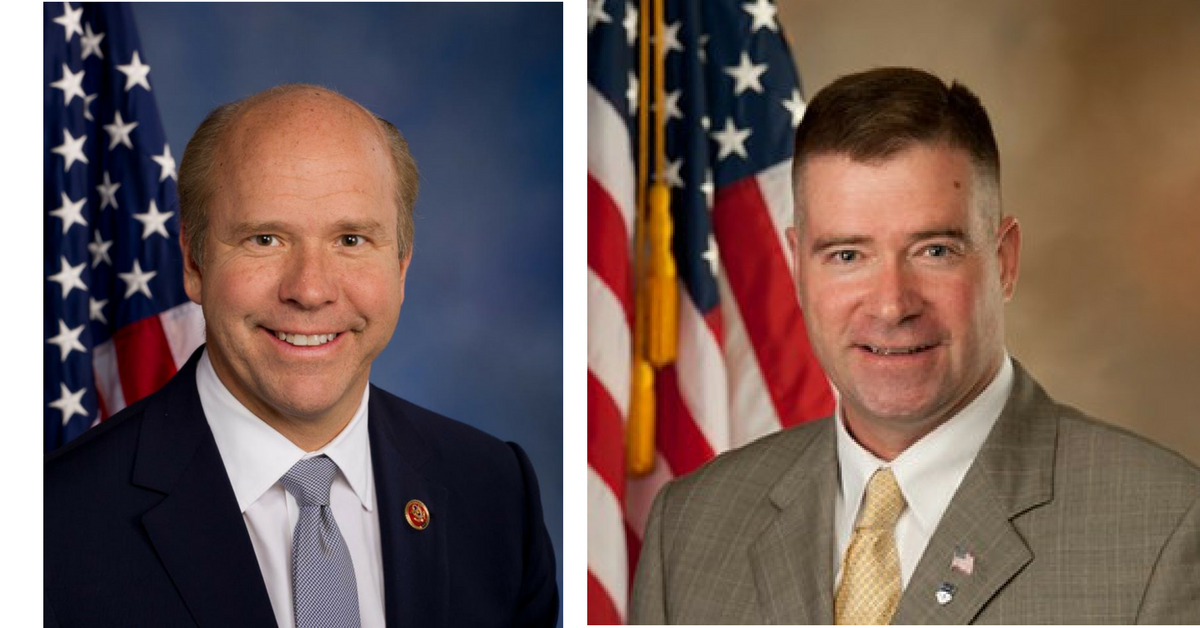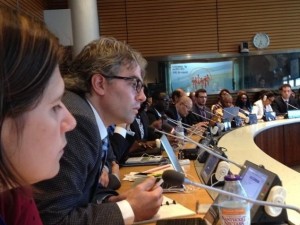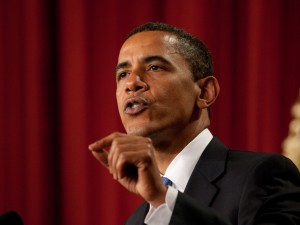
This fall, Democratic Rep. John Delaney (L) and Republican Rep. Chris Gibson (R) introduced a bill aimed at finding science-based ways to reduce America’s emissions.
By Flannery Winchester
In the aftermath of surprising election results, an exciting piece of proposed climate legislation got a little lost in the fray. This fall, Congressman John Delaney from Maryland and Congressman Chris Gibson from New York introduced HR 6240, a bill called the “Climate Solutions Commission Act.”
The bill, if passed, would do several things: First, it would establish a bipartisan commission. Next, it would task that commission with the job of recommending how to reduce greenhouse gas emissions. And last—but certainly not least—it would require the commission to make those recommendations in line with the “the latest scientific findings of what is needed to avoid serious human health and environmental consequences of a changing climate,” the bill says.
Bipartisan efforts start to bear fruit
Those goals are promising, and even more so when you take a look at who’s behind the bill. Rep. Delaney, a Democrat, and Rep. Gibson, a Republican, are both members of the bipartisan Climate Solutions Caucus. They also brought along co-sponsors from both parties—Curbelo, Dold, Lowenthal, Deutch, and Peters—each of whom is also a member of the bipartisan caucus. (Take a moment to tweet your thanks to them for supporting this bill!)
Rep. Carlos Curbelo said in a statement, “The Climate Solutions Commission Act is just another example that Members from both parties are willing to come together and work on solutions to mitigate the effects of climate change. I look forward to continuing this important dialogue with my colleagues on the bipartisan Climate Solutions Caucus, as well as all stakeholders who are interested in working together to build consensus.”
Environmental groups such as CCL and the Environmental Defense Fund, are supportive of legislators that engage in consensus-building discussion. Carol Andress, EDF’s Legislative Operations Director for Climate & Air, says, “The commission would provide some fresh perspectives on steps that could work for both parties. There may be new, innovative policy pathways to achieve significant emissions reductions.”
An evidence-based pathway to lower emissions
In addition to the bipartisan nature of the bill, another feature of the bill is important to note: the emphasis on scientific evidence. “Specifically, and deliberately, the bill does not have the commission establish the emission reduction goals,” Andress explains. “The bipartisan commission would be charged with recommending how to achieve those goals, but not what the goals should be. Those goals must be driven by the science.”
That’s huge. With the incoming Trump administration seeming increasingly bent on ignoring climate science, House Republicans send a strong message by embracing and elevating that science. Andress adds, “It’s the first time since 2010 that Republicans have joined a bill that has clear climate goals consistent with the latest science.”
And the sooner they can enact policy in line with the science, the better. Rep. Gibson said in a statement, “Our changing climate is a threat to national security, the environment, public health, and the economy, including agricultural production. It is imperative that we begin to make the correct choices today to mitigate and reverse human causes of our changing climate.”
Climate action in a new Congress
Unfortunately, the bill likely won’t be passed before the new Congress convenes in January, meaning it would need to be reintroduced in the next session to have a shot at becoming law. Regardless of this specific bill’s future, its effects will still be felt, Andress says. “HR 6240 establishes an important baseline that we hope to build on in the next Congress.”
Overall, this bill is an early, exciting taste of what could come from the Climate Solutions Caucus in the future. Keep an eye out for what bipartisan, evidence-based efforts like these will yield over the next four years—the potential is huge.



